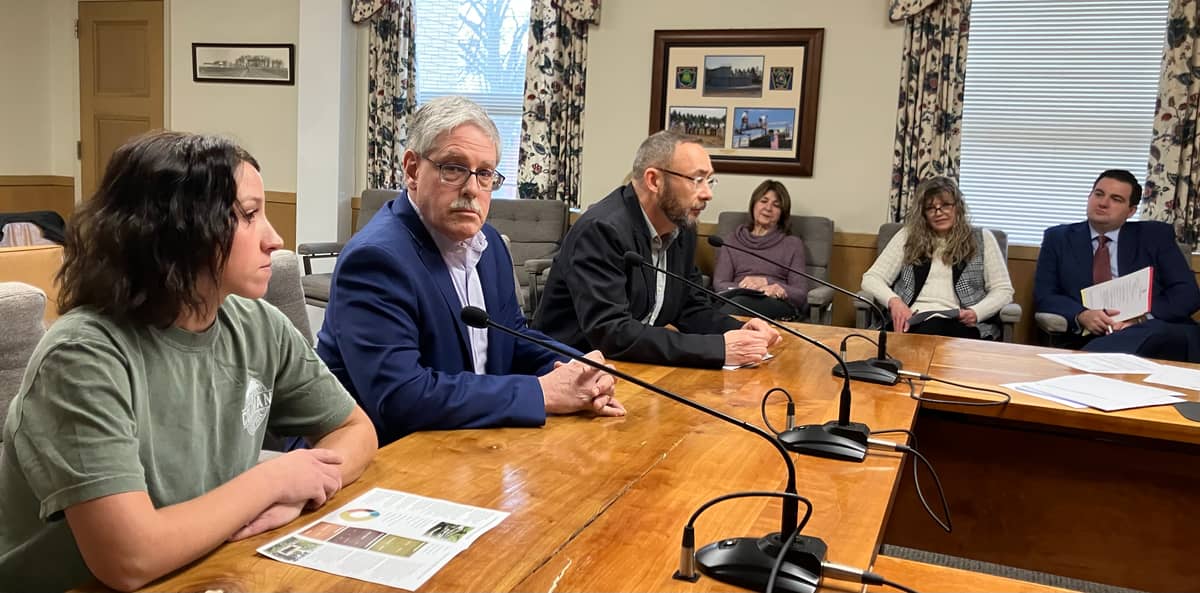This column was submitted to LebTown. Read our submission policy here.
Since I was first elected in 2016, I have never seen so many e-mails and received so many calls from parents about our schools.
The largest numbers of calls had been coming from COVID-19 school spectator sport limitations, school closures and then reduced school schedules, then masks, and now issues are surfacing relative to critical race theory being taught in our schools. Efforts protecting women’s sports are following close behind.
In Lebanon, the concerns have been more preemptive in nature in that parents have been calling me and my office asking if the Department of Education can mandate Critical Race Theory in schools and what parents can do about it.
In response to concerns from parents and critics of the theory, the House of Representatives introduced HB 1532, the “Teaching Racial and Universal Equality Act”, to counter concerns over the concept of critical race theory. I am a cosponsor of the bill.
For those who are not familiar with the concept, the following is directly from an article on the topic of what the theory is and is not. “Critical race theory recognizes that systemic racism is part of American society and challenges the beliefs that allow it to flourish.”
“Critical race theory is a practice. It’s an approach to grappling with a history of White supremacy that rejects the belief that what’s in the past is in the past, and that the laws and systems that grow from that past are detached from it,” said Kimberlé Crenshaw, a founding critical race theorist and a law professor who teaches at UCLA and Columbia University.”
In a press release, Reps. Barb Gleim, R-Cumberland, and Russ Diamond, R-Lebanon, said the Teaching Racial and Universal Equality Act or HB 1532, is “aimed at curtailing the divisive nature of concepts that have become known as ‘critical race theory.’ ”
“Our legislation makes it clear that no Pennsylvania school district, public postsecondary institution, or state or local government entity shall teach that any race or sex is superior to another, that any individual based on their race or sex is inherently racist or sexist, or that any individual should receive favorable treatment or be discriminated against based on their race or sex,” Gleim said.
Many states have already banned the theory from their schools or are in the process of doing so.
I suggest school districts, school boards, parents and our community begin an open dialogue as soon as possible on critical race theory and other pressing issues in our schools to preclude a crisis of confidence.
The problems will not go away and the issues are manifesting themselves in potentially disastrous ways as more and more parents demand more academic choices for students and parents alike in response to their concerns.
Some of the most pressing issues beyond critical race theory include:
- HB 972 the Fairness in Women’s Sports Act which restricts girls’ sports to biological girls. The bill was written predominately by women athletes who expressed concern that gains in Title IX would be reversed if women’s sports were not protected.
- Continuation of mask mandates due to COVID-19 post pandemic.
- Vaccination passports being mandated. This issue has been a hot topic for educators, parents and students alike.
- Property tax increases due to increase education costs
- School schedules and shutdowns which affect families in which there is only one parent or when both parents are working
- Charter school costs impact on the public school budget
- The never ending battle about the school funding formula in which most county schools receive about 25% or so from state and federal funds whereas Philadelphia schools receive approximately 58% of its funding from state and federal funds. Only Lebanon City Schools are in a similar funding status as Philadelphia. This disparity is made up by our citizens.
- Finally, unfunded pension obligations of the PSERS pension system. As Vice Chair of the system and Chair of the Audit Committee, the funding issues are significant and are a major source of costs for all of our school districts.
This list is significant and demands immediate effort on all of our parts.
I have been pleased that the Superintendents, whom I respect tremendously, have worked diligently with me to try to resolve some of these issues. Other issues require more open participation, or the state will step in to solve them in ways that are not perhaps acceptable to many.
The issues identified here are reaching a boiling point and they will not go away. Without input from ALL concern, we run the risk that decisions will be imposed upon us all that are problematic.
Time is not on our side.
Our children are depending on us.
Frank Ryan, CPA, Col USMCR (Ret) represents the 101st District in the PA House of Representatives. He is a retired Marine Reserve Colonel, a CPA and specializes in corporate restructuring. He serves as Vice Chair of the PSERS Pension Board and its Chair of the Audit/Compliance Committee. He can be reached at fryan@pahousegop.com.

























